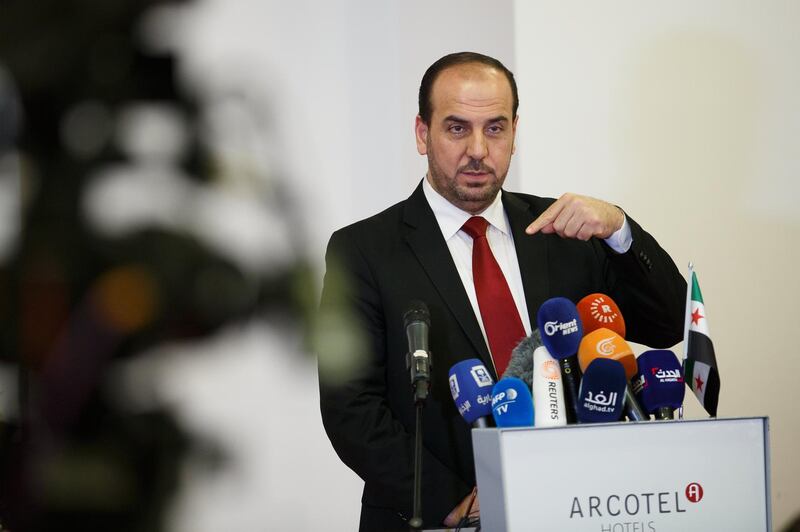Upcoming peace talks in the Russian Black Sea resort of Sochi will call for the Syrian people to decide their future by popular vote without external pressure, Russia's Ria news agency reported on Saturday.
It came just hours after the Syrian opposition declared it would not attend the conference in Sochi, as a ninth round of UN-sponsored peace talks ended in Vienna without result.
The Moscow-brokered meeting is due to take place next week. It was postponed in November last year due to differences between the would-be attendees, including over participation of the Kurds — a sticking point for Turkey.
The Ria news agency cited a draft communique of the congress, saying it would call for Syria to remain a united country and for a vote on the future of the country.
"The Syrian people independently determine the future of its country democratically by way of the vote," the agency quoted the document as saying.
___________
Read more:
[ Turkey says US needs to withdraw from Syria's Manbij area 'immediately' ]
[ Vienna talks 'last hope' for Syria ]
[ Russia “bears responsibility” for Syrian chemical weapons strikes, says Tillerson ]
___________
Nine rounds of United Nations peace talks between the warring sides have made little progress toward ending a war in which hundreds of thousands have been killed and 11 million — a majority of the Syrian population — driven from their homes.
The UN said on Saturday that its Syria mediator, Staffan de Mistura, would attend the Sochi talks.
"The secretary-general is confident that the congress in Sochi will be an important contribution to a revived intra-Syrian talks process under the auspices of the United Nations in Geneva," UN spokesman Stephane Dujarric said.
Western powers and some Arab states believe the conference in Sochi is an attempt to create a separate peace process that would undermine UN efforts and lay the groundwork for a solution more suitable to Syrian president Bashar Al Assad and his allies, Russia and Iran.
On the ground, meanwhile, bombardment of rebel-held Eastern Ghouta continued early on Saturday, a monitor group said.
It came after a rebel spokesman said late on Friday that Russia had promised to try to impose a ceasefire.
No ceasefire was formally announced by Russia or the Syrian government, whose army has besieged the enclave outside Damascus for years and has stepped up its bombardment there in recent months.
Five bombardments targeted eastern Ghouta overnight, including with rocket strikes and artillery shells, said the Britain-based Syrian Observatory for Human Rights.
Russia is the main external supporter of Mr Al Assad.
Ayman Al Asemi, a member of the Free Syrian Army's military council, said late on Friday that Russia had made a pledge to opposition negotiators in Vienna that it would press Damascus to enforce a ceasefire in Eastern Ghouta.
However, Nasser Al Hariri, head of the opposition delegation in Vienna, did not mention Eastern Ghouta or any ceasefire agreement during a news conference on Saturday.
The Vienna talks ended on Friday with the opposition saying it would not attend the Sochi talks.
Mr Al Hariri said the decision not to attend was made after a vote among the opposition groups that form the delegation and that he hoped the Sochi meeting would still prove useful. He said Russia had not put pressure on the delegation to attend.
International concern has been rising over the fate of Eastern Ghouta, where the UN says acute food and medicine shortages have contributed to the worst malnutrition seen in the Syrian civil war.
The enclave is home to almost 400,000 people and is in an agreed "de-escalation zone" under Russian-led truce deals for opposition-held territory, but the fighting there has continued.
Also on Saturday, US secretary of state Rex Tillerson reiterated that the US believed it was Russia's responsibility to curb Syria's use of chemical weapons.
"The chemical weapons … are being used to hit the civilian population, the most vulnerable — children inside of Syria," he said on a visit to Poland
"We are holding Russia [responsible] for addressing this. They are [Syria's] ally."
It came after Mr Tillerson told an international conference in Paris on Tuesday that Russia "ultimately bears responsibility" for chemical attacks in Syria.





